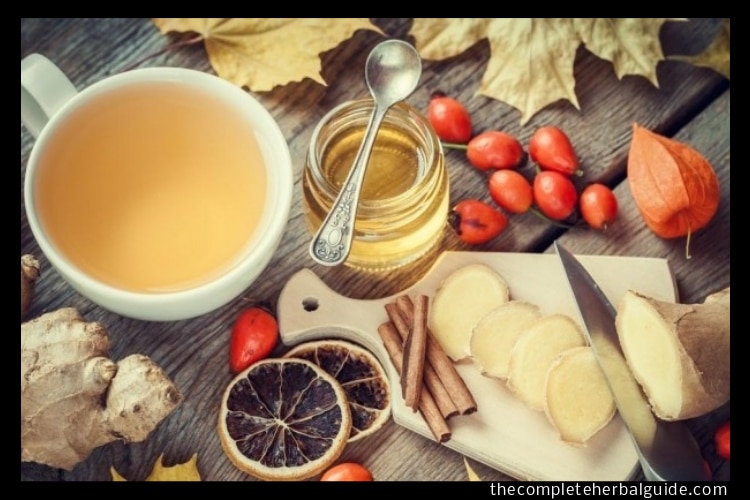
Top Reasons Why Wine Gives You a Hangover & The Secrets On How To Avoid It
Table of Contents
Here’s Why Wine Gives You a Hangover and The Secrets On How To Avoid It
Many people ask me about hangovers, sulfites, and intolerance to wine now that I am an official wine snob and part-time wine student at the WSET. It’s a surprisingly complex topic, and this article tackles the whole wine hangover phenomenon.
What is a hangover
If you do a Google search, you will discover that the most common symptoms of a hangover are:
- Fatigue and weakness
- Thirst
- Headaches and muscle aches
- Nausea, vomiting, or stomach pain
- Bad sleep
- Increased sensitivity to light and sound
- Dizziness or a sense of the room spinning
- Shakiness
- Decreased ability to concentrate
- Mood disturbances, such as depression, anxiety, and irritability
- Rapid heartbeat
But you don’t have to take the Mayo Clinic’s word for it. You can also discover the symptoms firsthand if you knock back a few bottles of cheap plonk.
How much alcohol can your body process?
‘Moderation in all things,’ said Ralph Waldo Emerson. And this is the best way to avoid a hangover. Alcohol is, after all, a poison and a bottle of wine is likely to be 11-15% alcohol by volume (‘abv’).
Our body can process, on average, one unit of alcohol (10 ml of pure alcohol or 100 ml at 10% abv) per hour. This means we process a 13% abv small glass of wine (125ml) in more than an hour and a half. How much does it take our liver to process half a bottle (three small glasses of wine)? The math is cruel: four to five hours.
What causes a hangover?
I hear a lot of people blaming sulfites for the hangover effect of wine. This is so wrong! Since the Middle Ages, sulfites have played an important role in almost all winemaking.
We will look into this in another blog post, but if you can eat a dried apricot without a hangover (it has more sulfites than a bottle of wine) and you get a hangover from drinking too much beer or spirits, then sulfites aren’t the cause of your hangover.
A small warning: it will get a bit scientific in terms of terminology, but in the end, you need to know – spoiler alert – that the main culprit for a hangover is the alcohol itself.
We produce alcohol in our stomach all the time when we digest food, but it is in minuscule quantities, which our body can process easily. That’s why we are equipped to process alcohol. However, alcohol in large quantities is toxic for our bodies, as we have a limited capacity to process it quickly. This explains why binge drinking is so dangerous, as it can lead to coma and death.
Coma and death are among the less pleasant aspects of alcohol poisoning so let’s put them aside and explore the processes behind the more commonplace symptoms.
Hangover-related headaches, nausea, and vomiting
Acetaldehyde is a component that occurs in nature in bread, fruits, and oxidized drinks (e.g., stale wine). It is also a by-product of alcohol oxidation. If you smell and taste Fino Sherry, you’ll experience acetaldehyde: bruised apples, hay, and chamomile.
Our liver produces the same substance when it oxidizes and breaks the alcohol (ethanol) down, ready for further processing into something similar to vinegar, which is harmless for the human body.
Geek-ing out a bit further, a sulfur-containing amino acid is one of the two enzymes that break down the acetaldehyde, named cysteine. So, here is evidence that our liver uses sulfur (the main component of sulfites) to break down the by-products of alcohol. This cysteine helps our body produce a natural antioxidant (glutathione) that breaks down alcohol toxins.
Our bodies can only produce a limited amount at a time, so unprocessed alcohol sloshes around our body, giving us headaches, nausea, and vomiting as our body tries to get rid of the toxin.
Women produce less of the magic alcohol-eating substance than men. That’s why government guidelines recommend that women drink fewer units than men.
Hangover tiredness
Alcohol has a depressive effect on the neurological system. What does this mean?
Our brain produces a stimulant called glutamate. We are more familiar with the MSG version, the food taste enhancer. Still, in our brain, glutamate helps carry information essential to memory, learning, and normal well-being. There is a trick: it must be present at the right concentration and time. Too little or too much is toxic for us.
In the first phase, alcohol inhibits our body from making glutamate. When we stop drinking, our brain compensates and then produces more, creating a temporary imbalance. We will never be able to have a proper, relaxing sleep in these circumstances, as our brain will be too excited trying to balance itself. This messes up with our REM sleep cycles, the ones that help us feel rested, alert and perky and which help our memory and creativity.
We are all familiar with the outcome of poor quality sleep: tiredness, trouble concentrating, irritability, stress, etc.
In the Sleep for Success book, which I warmly recommend, the authors recommend that we should not drink three hours before we go to bed, as otherwise, to quote them: “throughout the night you’ll be continually shaken and stirred.”
Hangover dehydration
We all know that alcohol dehydrates us. How many times did we wake up thirsty after having a little bit too much to drink? And you don’t need to drink alcohol to know dehydration causes headaches.
Alcohol inhibits a hormone in our brain (vasopressin), which mainly retains water in our bodies and constricts the blood vessels. As a result, water is sent directly to the kidneys and bladder and is not absorbed by the body. Hence, dehydration and thirst.

One glass of wine causes the body to eliminate up to three to four times the same quantity of water. That’s why it is important to drink plenty of water when you drink alcohol. To fully compensate for the water loss, the math is: drink one liter of water for two small glasses of wine.
Wine fermentation by-products and hangover
I can’t help but think that this next part would have made my high school chemistry teacher very proud, as although I loved inorganic chemistry, I wouldn’t say I liked organic chemistry with a passion. And now, here I am, using what I learned.

Alcoholic fermentation creates different forms of alcohol:
- Methanol is very toxic but is present in very tiny proportions in wine. It is found mainly in the heads of the spirit distillation, which are discarded. As a result, badly-distilled spirits are more dangerous than wine.
- Ethanol is the main type of alcohol in wine and any alcoholic drink.
- Tail types of alcohol, like propranol, and butanol (fuel oils), are not as toxic as methanol but can cause headaches and nausea. If you are sensitive to these and experience headaches and nausea, even if you drink a small glass of wine, stick to clear, good, quality spirits (gin, vodka), as they will not have them.
All these alcohols are important in the process of wine maturation because they interact with acids and form the fruit aromas in wine. The fermentation process creates many of these flavors that are not present in grape juice. Grape juice tastes like grapes, but people writeencyclopediass about the taste of wine.
How can you mitigate hangover effects?
In moderate quantities, alcohol has some beneficial effects. It acts like an anticoagulant, increases the high-density cholesterol (good cholesterol), which decreases the risk of heart diseases and helps reduce bad cholesterol. Wine contains high quantities of potassium, which helps process salt. Red wine also contains powerful antioxidants, resveratrol being the best known.
However, alcohol is toxic and considered a drug, so if you know you are going to drink a bit more on one occasion, keep the below in mind:
- Know your body: pay attention when you drink to what causes you issues. You might be intolerant to some types of alcohol or components.
- Drink with moderation over a longer period of time, with food, as food slows down the absorption of alcohol, giving more time to the liver to do its job. Remember, we process half a bottle of wine in four to five hours.
- Have plenty of water with your drinks. Remember that we lose approximately half a liter of water with each small glass of wine.
- Stop drinking at least two to three hours before you go to sleep. This will allow your brain to calm down.
- Accept defeat and deal with the consequences by being more knowledgeable about what caused your hangover: too much alcohol. A hangover IV in Fort Lauderdale can help rehydrate your body and replenish vitamins lost while drinking. Other ingredients in this IV can help improve headache and nausea symptoms quickly.
Lastly, cutting back doesn’t necessarily mean self-denial. Oscar Wilde picked up on Emerson’s theme, ‘Everything in moderation, including moderation.’ There’s a lot of cheap, nasty wine out there. But there’s also a wonderful world of good, high-quality wine with character and personality. And so, perhaps the best way to avoid a hangover is to switch from drinking more of the bad stuff to savoring a bit less of the good stuff. With wine, sometimes less is more.










